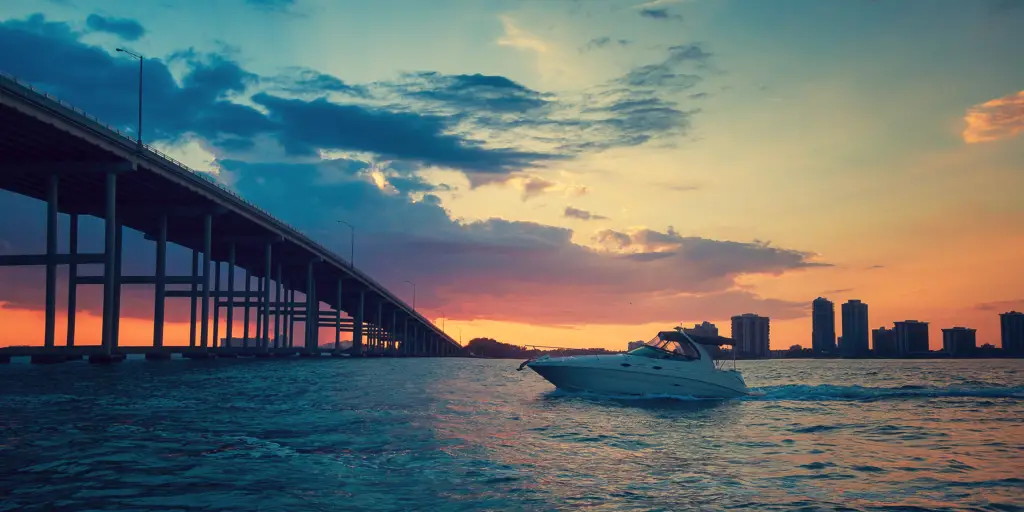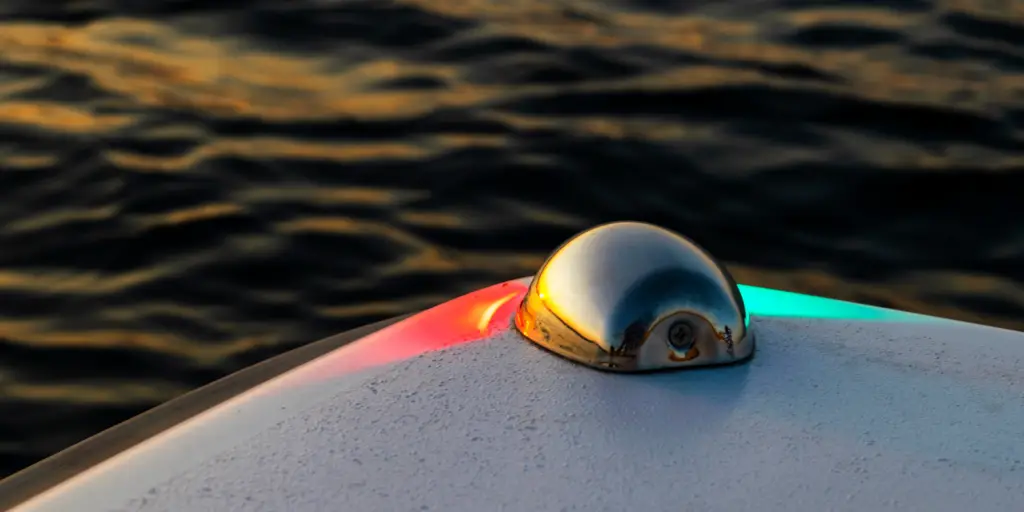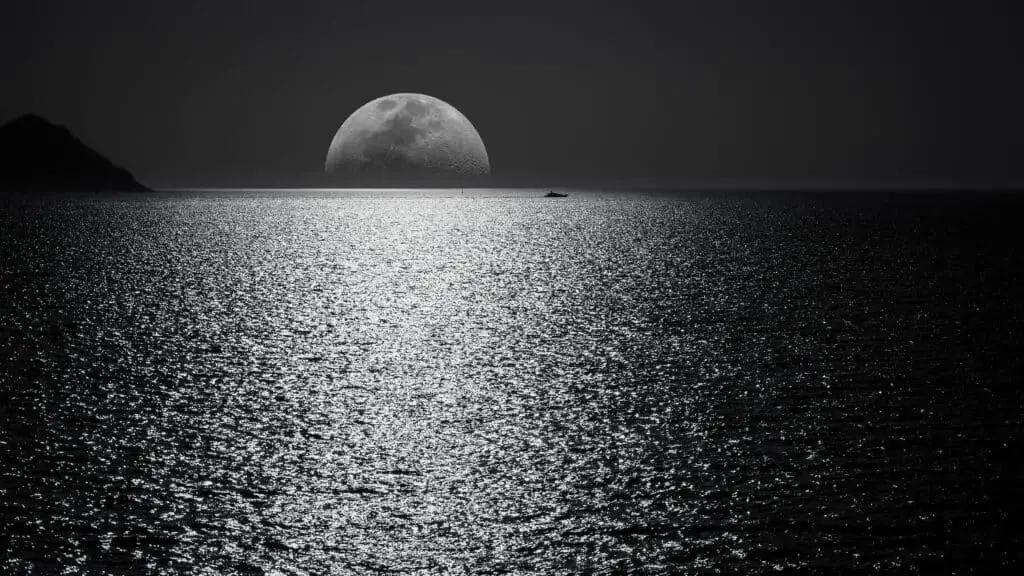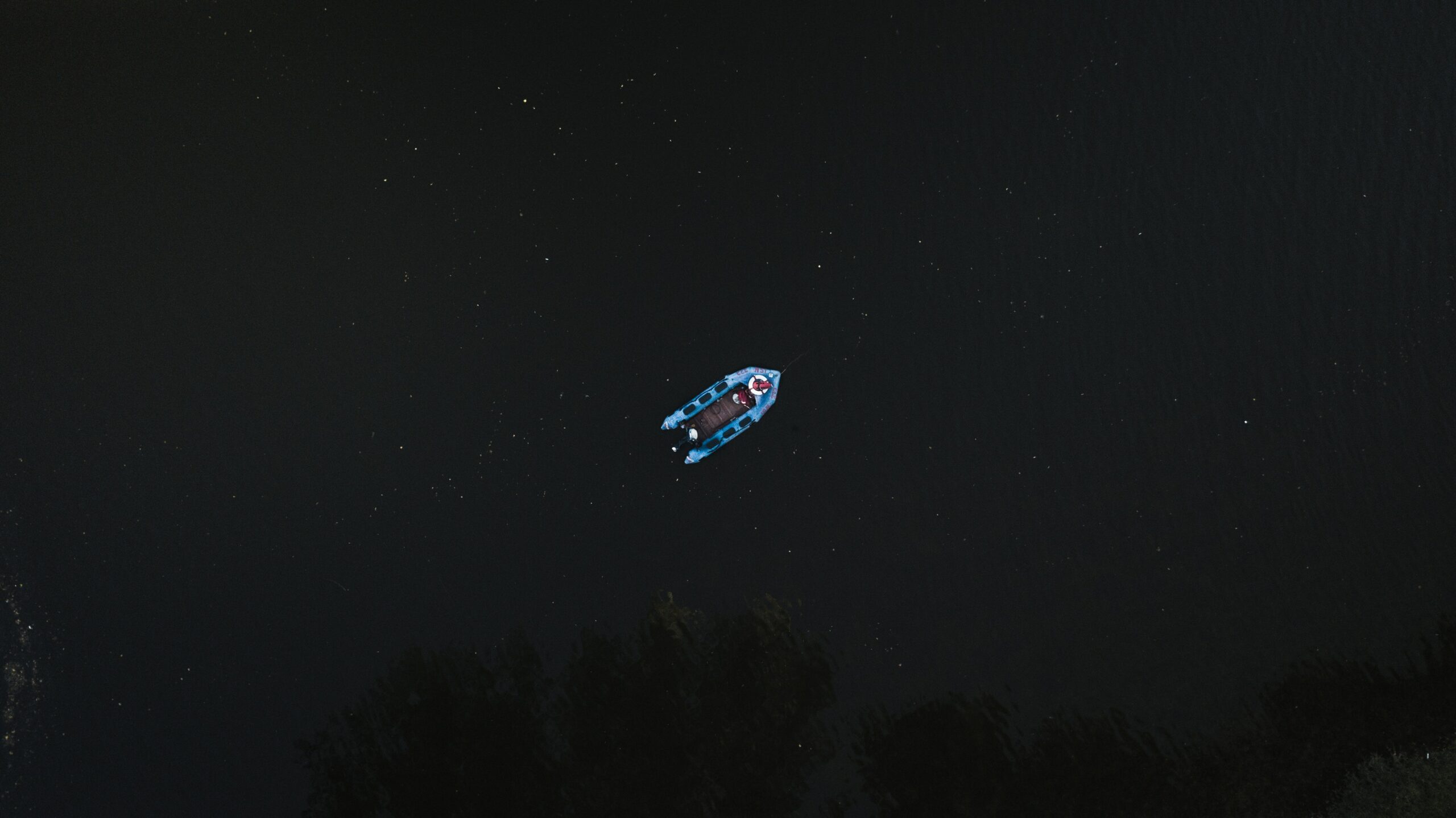As you float on glass-like water with the stars above your head, with no sounds but the gentle gusts of a cool breeze, you can’t think of anything more tranquil than boating at night.
While boating at night can be an experience like no other, it can also be incredibly dangerous if you’re not prepared. Let’s review some key tips for boating at night so you can venture out after dark with the confidence you’ll need for a safe voyage.

Trust Your Instincts
This may seem obvious, but using your instincts when boating is especially crucial at night. Our instincts are the best tools we have at our disposal, and they rarely do us wrong.
What I mean by this is when boating at night, rely on your eyes and ears more than anything. Once your eyes adjust to the darkness, you’ll be able to see well enough to navigate in most areas. That’s why it’s very important to limit lighting as much as possible. Don’t use flashlights unless absolutely necessary, and if you have electronics like GPS or depth finder screens, turn the brightness down as much as possible.
If your boat is equipped with docking lights, know that they are not intended to be used as headlights, but only for docking as the name implies. You will have limited visibility if you try to use docking lights as headlights, and the extra light will limit your ability to adjust your eyes to the dark. The same is true for the other boaters around you.
The same goes for ambient noise, so keep it at a minimum. While it’s perfectly natural that you’ll want to play some music or have conversations with your passengers, reserve it for when you’ve anchored or beached somewhere. When underway, you’ll need your ears to listen for other boats and it also adds another layer of awareness.
In addition, make sure if you plan to go boating at night that it’s in an area you’re familiar with and navigated during the daytime. That way you’ll instinctually know where to go, what areas to avoid, and where you are because of your prior experience.

Navigation Tips
Marine navigation at night can seem daunting, but with a little preparedness, it can be surprisingly simple. As I just mentioned, first and foremost make sure that you’re familiar with the area you’ll be going in the daytime before you boat there at night.
Another key aspect of boating at night are navigation lights and how to interpret them on other boats. Of course, make sure your navigation lights are on at all times and that they’re installed in the right places. In the U.S. at least, navigation lights consist of a bow light that is red on the left (port), green on the right (starboard), and a white light on the stern at the starboard side. Tall boats or boats with a mast such as sailboats may have lights at the highest point.
If you understand where navigation lights are oriented, you can use them to determine where other boats are and in what direction they’re headed. For example, if you see a red light with a white light behind it, you’ll know another boat is coming toward your direction with its port side facing you.
If equipped on your boat, electronics like radar, depth finders, and GPS can be extremely effective for boating in the dark. They’ll give you real-time data about where you are and where other boats are, so use them if you have them, but don’t rely on them completely in the event they stop working properly.

Safety Tips and Equipment
Boating safety is always important, but you should be extra careful at night. Due to decreased visibility, accidents and other safety concerns are statistically more likely at night.
Perhaps the easiest way to operate a boat safely at night is to simply slow down. If you go as fast as you would in the daytime, your chances of colliding with another boat, running aground, or hitting debris increase substantially. Don’t be in a rush and operate your boat at a slow speed. In fact, the slower, the better, as it allows you more time to observe and react to what’s going on around you.
As with daytime boating, you should have a variety of safety equipment and signaling devices onboard. These include but are not limited to:
Ensure that you have all these items and you know where they’re stored on your boat so you can get to them quickly in an emergency. Many of the above items are required by law to have onboard most boats regardless, so you should already be prepared.

Miscellaneous Night Boating Tips
Aside from the necessary navigation and safety concerns, there are a few other things you should know to be prepared for a nighttime boating adventure.
Many first-time night boaters don’t realize how cold it can get on the water after sunset, even in the peak of summer. Make sure to bring some warm clothing like a jacket, sweatshirt, and sweatpants, as well as some blankets so you and your passengers can be as comfortable as possible.
Another great thing to have for boating in the dark is a good headlamp. Don’t rely on it to navigate, but have it on your head in case you need to quickly look for something or to look at a map. I’ve found headlamps to be especially helpful because they keep both hands free.
In Summary
Boating at night can be incredibly fun and is something that everyone should experience at least once. Although it can be dangerous, with the right knowledge and preparation it can be a perfectly safe activity. I encourage you to remember these tips and equip your boat with all the necessary gear I suggest so you can have a safe and enjoyable nighttime boating adventure!
- What Size Trolling Motor is Needed for a Pontoon Boat? - April 28, 2023
- The Best Kayak Seat Cushions to Help You Stay on the Water Longer - April 13, 2023
- The Best Pontoon Boat Rod Holders - April 12, 2023

